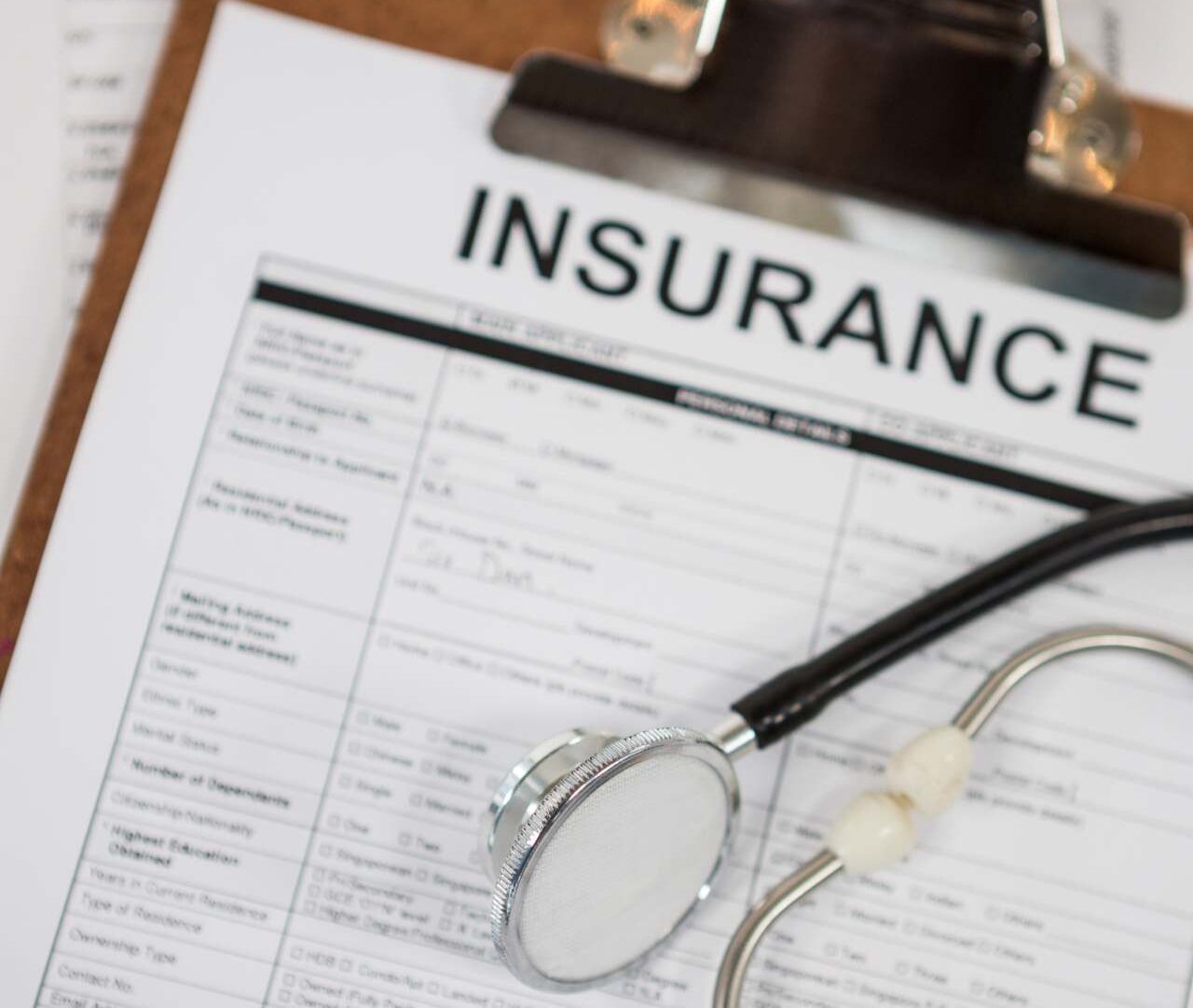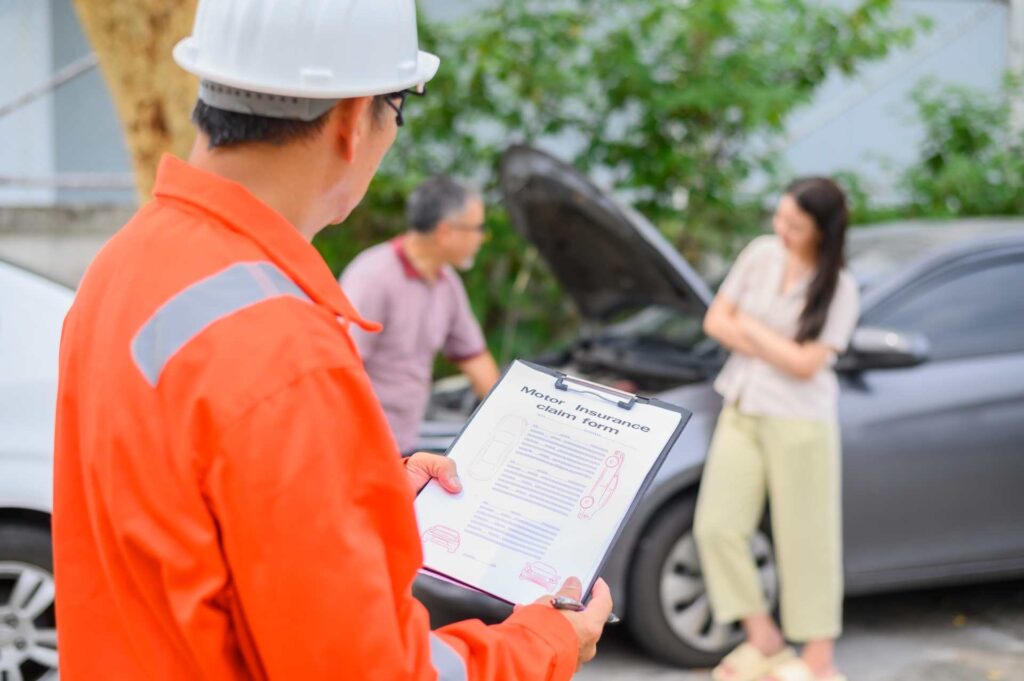A car accident can be overwhelming, with emotions running high and confusion settling in almost immediately after the collision. Amid the chaos, one critical step that many people find confusing is figuring out which insurance company to contact first. Should you call your insurance provider or the other driver’s? This uncertainty is common, but understanding what to do next can help relieve some of the stress. Whether it’s a minor fender-bender or a more serious accident, having the right information ensures that things move more smoothly.
Let’s walk through the steps you need to take when it comes to contacting insurance after an accident. To know what to do after a car accident, read our guide.
Whose Insurance Do I Call After an Accident?
One of the first questions that comes to mind after an accident is, “Who do I call first—my insurance or theirs?” The answer depends on a few factors, including where you live and the details of your accident.
In some states, you’ll want to contact your own insurance company first, regardless of who was at fault. These are called “no-fault” states, where your insurance will cover certain losses like medical bills, regardless of who caused the accident. In other states, which follow an “at-fault” system, the insurance company of the driver responsible for the accident will typically be the one covering the damages.
Here’s a breakdown:
- No-Fault States: Your insurance will cover your medical expenses under personal injury protection (PIP) policies.
- At-Fault States: The insurance company of the driver found to be at fault will cover most of the damages.
In both cases, it’s still best to notify your own insurance first. Even in at-fault states, your insurance provider may help you navigate the claims process or even pay for initial repairs while the claim is settled with the other party’s insurance.
How Soon After an Accident Should You Call Insurance?
After an accident, time is of the essence when it comes to notifying your insurance company. The sooner you call, the smoother the process will likely be, and your claim can move forward more quickly.
In most cases, you should aim to contact your insurance provider within 24 hours. Some policies have specific timelines for reporting an accident, so check your policy details. Even if you think the damage is minor or you feel fine after the accident, it’s essential to report it promptly. Waiting too long could lead to complications in processing your claim, or worse, your claim could be denied entirely.
Possible risks of delaying your call include:
- Your insurance may question the validity of the claim.
- Important details may be forgotten, weakening your claim.
- Delays in repairs or medical attention may occur.
Make sure to gather the necessary information at the scene, but contact your insurer as soon as possible to start the claims process.
How to Report the Accident to Your Own Insurance
Contacting your own insurance provider is straightforward, but having all the necessary information ready will make it even easier. Here’s what you need to do:
- Call Your Insurance Provider: Use the contact number on your insurance card or the app if your insurance company has one.
- Provide Key Accident Details: Include the date, time, and location of the accident. If there were any weather or road conditions that contributed to the incident, mention those too.
- Share Contact Information: Give the names, addresses, phone numbers, and insurance details of the other driver(s) involved.
- Describe the Damage: Explain the damage to your vehicle and any visible damage to the other vehicle.
- Submit Documentation: You’ll likely need to provide photos of the damage, a copy of the police report (if there is one), and any other relevant documents, such as medical bills or repair estimates.
Remember, your insurance company is there to help. They’ll guide you through each step, but the more prepared you are with details, the smoother the process will go.
Should You Contact the Other Driver’s Insurance?
In some cases, you may need to contact the other driver’s insurance company, particularly if you were not at fault. However, it’s important to be cautious when doing so.
You might want to contact their insurance provider if:
- You’re seeking reimbursement for repairs or medical bills.
- Their insurance company hasn’t reached out to you yet.
- You need to report the incident for their records.
Before calling the other driver’s insurance, consider getting legal advice, especially if there’s significant damage or injury. Insurance companies aim to protect their interests, and anything you say can be used against your claim. It’s often helpful to have support, so consult with an attorney before making contact to avoid potential pitfalls.
What to Expect During the Insurance Call

When you contact your insurance company after an accident, they’ll ask for specific details to help process your claim. This can feel overwhelming if you’re not sure what to expect, but the process is manageable with a little preparation.
Here’s what your insurance company will likely ask for:
- Personal Information: Your name, policy number, and contact information.
- Accident Details: When, where, and how the accident occurred, including the other driver’s details and the circumstances leading up to the collision.
- Police Report: If there was a police report filed, your insurance company may ask for a copy or the report number.
- Photos: Providing photos of the damage to your vehicle and the accident scene can help with the claims process.
- Medical Information: If there were any injuries, you may need to provide medical records or bills.
Your insurance company will guide you through the next steps, such as getting estimates for repairs or setting up a rental car if your policy covers it.
Important Tips for Handling Insurance Conversations
Dealing with insurance after an accident can be stressful, but with a few practical tips, you can navigate these conversations with confidence. Here are some important points to keep in mind:
- Stay Calm and Polite: Keep your emotions in check and remain respectful, even if you’re upset. Staying calm will help the conversation go more smoothly.
- Avoid Admitting Fault: Stick to the facts and avoid statements that imply blame, such as saying “I didn’t see the other car.”
- Keep Records of Every Conversation: Document the name of the person you spoke with, the time, and a brief summary of the conversation for future reference.
- Be Honest: While you don’t want to admit fault, always be truthful. Giving inaccurate information can hurt your claim.
- Ask Questions: If you’re unsure about any part of the process, don’t hesitate to ask. Your insurance company is there to help, and getting clarity now can prevent confusion later.
By keeping these tips in mind, you’ll feel more empowered to handle your insurance conversations and move through the process with less stress.
What to Do If Insurance is Delaying or Limiting Your Treatment After an Accident
Here’s what you can do if your insurance company is delaying or limiting treatment:
- Gather Documentation: Keep detailed records of all your medical visits, treatments, and any correspondence with your insurance provider. This includes copies of bills, medical reports, and any communication with healthcare professionals.
- Stay Persistent: It’s important to follow up with your insurance provider regularly. Don’t be afraid to ask for updates on your claim and escalate your case to a supervisor if necessary.
- Consult a Medical Professional: Speak with your doctor about the limitations placed on your treatment. They can provide additional medical reports or recommendations that support the need for certain treatments.
- Seek Legal Assistance: If the delays or limitations become significant, you may need to consult an attorney who specializes in insurance disputes. They can help you navigate the complexities of insurance claims and ensure that your rights are protected.
At times, dealing with insurance after an accident can feel like an uphill battle. But by staying proactive and seeking help when needed, you can ensure that your treatment is not compromised.
How AICA Orthopedic Can Help You After a Car Accident
At AICA Orthopedic, we understand how difficult it can be to manage recovery after a car accident, especially when dealing with insurance issues. Our team specializes in treating a wide range of car accident injuries, from whiplash to more severe trauma, and we focus on providing the best care possible to help you recover fully.
What makes AICA Orthopedic stand out is our comprehensive approach. Not only do we provide expert medical treatment, but we also help with the insurance process. We ensure that all medical documentation, treatment plans, and bills are properly handled to support your claim. This attention to detail can make a big difference in how smoothly the insurance process goes.
In addition, we collaborate with attorneys and third-party billing services to help patients avoid out-of-pocket costs, particularly for those not at fault. If you’re feeling overwhelmed by your insurance or need guidance on how to handle the situation, AICA Orthopedic is here to support you every step of the way.
Contact your nearest AICA Orthopedics today.
Frequently Asked Questions
How Soon After an Accident Should I Call My Insurance?
You should call your insurance company as soon as possible after an accident. Reporting the accident quickly helps ensure your claim is processed efficiently, and some policies have specific time limits for reporting.
Should I Call My Insurance Company After a Minor Accident?
Yes, even for minor accidents, it’s important to notify your insurance company. Failing to report a minor accident can lead to issues down the road, especially if the other driver files a claim or there is hidden damage to your vehicle.
Do I Need a Police Report to File an Insurance Claim?
A police report isn’t always required but is highly beneficial when filing an insurance claim. It serves as an official record of the incident, which can be helpful in determining fault and assessing damages.
Can My Insurance Rates Go Up Even If I Wasn’t at Fault?
In some cases, yes. Depending on your state and insurance provider, your rates may increase even if you weren’t at fault. It’s important to check your insurance company’s policies on rate changes following an accident.





